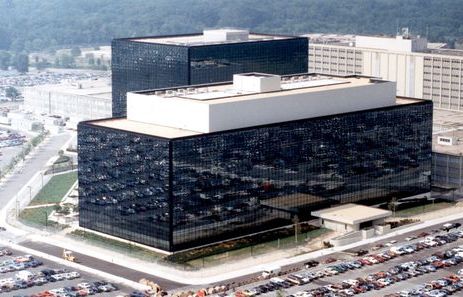The warrantless wiretapping conducted on American citizens by the US government following 9/11 was far more expansive and legally questionable than previously understood, according to a new book.
Kurt Eichenwald’s “500 Days” is a book about the government’s decision in the 500 days following the terrorist attacks on New York and Washington 11 years ago. One revelation in the book is that the National Security Agency’s warrantless wiretapping program, which was secret at the time, was proposed and put into practice in a matter of days.
The book reveals that it was three weeks after the plan was in place and fully operating that the Bush administration even decided to examine whether it was legal.
The program’s stated aim was to intercept communications in an out of the United States among potential terrorist suspects. Eichenwald writes that it was “the most dramatic expansion of NSA’s power and authority in the agency’s 49 year history.”
Aside from surveillance, the book explains, the NSA’s plan would gather and analyze billion publicly available documents online using American databases, including property records, phone numbers, registration’s for ownership of airplanes, boats and cars, etc.
William Binney, the former NSA analyst-turned whistleblower, was at the forefront of the surveillance program that came to be known as “Stellar Wind.” He has come out and said that the Bush administration committed “a direct violation of the constitutional rights of everybody in the country,” and that the NSA was and is currently collecting information on “virtually every US citizen.”
Binney has also condemned the Obama administration, warning that “the real problem I see is that the [Obama Department of Justice] is covering up for all the crimes that this administration and the previous administration has been committing against every one in the public.”
The FISA Amendments Act of 2008, up for renewal in Congress, authorizes a secret court to govern the surveillance program. But many are skeptical there has been much improvement.
The Obama administration still refuses to say how many times the government’s controversial surveillance program has gathered intelligence about US citizens. In July, it was publicized that the program had exceeded legal limits on at least one occasion in which it collected intelligence in an effort that was “unreasonable under the Fourth Amendment.”
It is a known fact that under the FISA Amendments Act “the government can and does intercept the communications of US citizens, even in the absence of any particularized warrant or showing of probable cause,” according to the dissenting members of the House Judiciary Committee in a report last month.
“The only thing the public really knows about it so far,” writes Julian Sanchez, a policy scholar at the Cato Institute, “is that it was almost immediately misused, resulting in ‘significant and systemic’ overcollection of Americans’ purely domestic communications. Subsequent reporting revealed that the improperly ‘overcollected’ communications could number in the millions, and included former president Clinton’s private e-mails.”
A few members of the Senate Intelligence Committee, Laura Poitras wrote in the New York Times last month, “have been warning about ‘secret interpretations‘ of laws and backdoor ‘loopholes’ that allow the government to collect our private communications. Thirteen senators have signed a letter expressing concern about a ‘loophole’ in the law that permits the collection of United States data.”
The Obama administration, as is usual in cases where they disregard the Constitution, promises this mass surveillance comes with strong safeguards and accountability. In reality, the war on terrorism is continuing to be used to justify major infringements on the civil liberties of Americans.



